Dune Then vs Dune Now
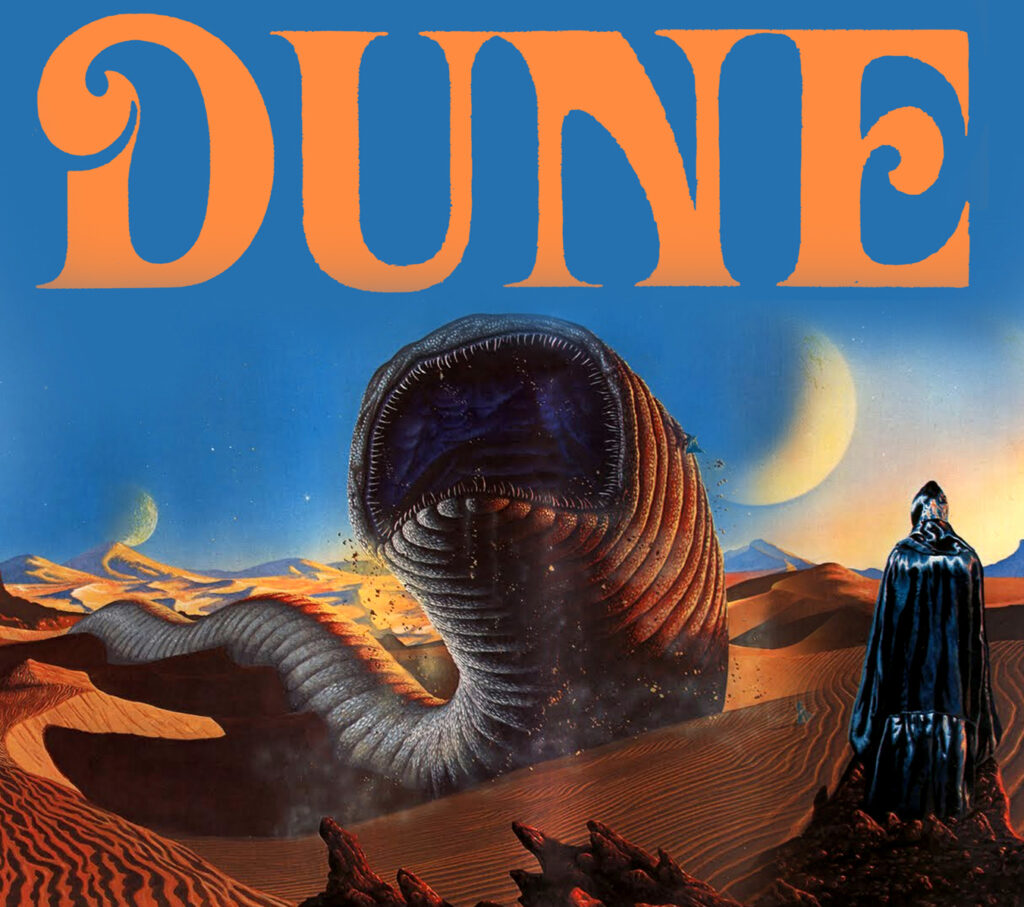
David Lynch’s Dune was, at least in my day, widely panned as a failure. A misadventure by a famously experimental art-house director who for many years did not want his name on the credits (when I first saw the film Alan Smithee was listed as director).
Dune the book is the highest selling science fiction novel of all time. It has enjoyed a huge popularity since it was first published (in installments in Analog Magazine). It is a masterpiece of epic sci-fi and mythic storytelling, but its true genius lies in its less apparent aspects. Throughout the series of books there is rather intense and astute nuggets of philosophy, mostly related to human power-dynamics, making it a kind of thesis of imperialism – the limits and flaws of messiah-hood and the nature of absolutes. It is, as such, an early example of a science fiction which ties the fabric of the future into the romantic polity of warring monarchies (a space opera of Emperors, barons, dukes, etc). This richness of theme, along with Herbert’s practical and political understanding of power, in fantastic settings (he who controls the spice controls the universe) make it rather memorable.

Lynch’s film remains, to me, the best film adaptation of the book. Jodorowsky’s failed effort to film Dune may have been comparable, at least in scope of courage and experimentation, but since we do not have this movie we can only theorise over the stunning concept art. While Lynch’s Dune does have some problems (namely it feels unfinished, and rushed in it’s last act) it was to many of us a long-time cult favourite (largely in secret). It was in fact, so cult, that you could not even properly call it a cult favourite, its detractors were so frequent and fervent. It did not particularly appeal to ‘alternative’ people, and its theme of epic sci-fi with a big budget did not lend itself to snobbish art-house critics, of which ‘cult’ films are associated. So the underground fans of this film were truly alone, without a cognizant category for this strange gem. But as with anything so gloriously odd, love it or hate it, it is not easily forgettable. For whatever reason, it seems today to have more favourably memorable opinions than not. I think this is common now with big budget 80s fantasy films, even those which flopped in their day, due to the nostalgic ‘classic era of special effects’ and non-woke storylines.
Baron Harkonnen, in Lynch’s hands, played brilliantly by Kenneth MacMillan, became an instant archetypcal screen villain. Kyle MacLachlan’s Paul was a perfect youthful noble; Patrick Stewart, Max Von Sydow, Jürgen Prochnow, and Freddie Jones were all brilliant, as was Francesca Annis as Paul’s mother. I don’t even mind Sting as Feyd Rautha, a casting choice often slyly smirked-at. I am not a fan of his solo music, or the Police, but I find him suitable in that role. His hair, at least, was perfect. Lynch’s stronger points, the quality of the cinematography, and the strange art-deco futurism of the set designs and costumes, are frankly unparalleled. The old school (pre-cgi) sand worm effects are also a delight, as well as the excellent Giger-esque ships and interiors.
There is much criticism about the narration of the character’s thoughts. It is odd, and I used to find it jarring, however now I see it is a welcome quirk, something you don’t see anywhere else, an interesting experiment in film storytelling.
Where I do believe the film goes wrong is just over the half-way mark, around the time Paul takes the water of life, which in the book seemed much more interesting. At this point in the movie there is no less than an 80’s ‘montage’ scene (complete with romantic guitar solo) and a summation of character development with lines like: ‘Paul and Chani’s love grew’. This is the juncture where the well-handled-weirdness and high stylizing fails, or at least dips — a slightly lazy or thoughtless handling of time elapse which might be more forgiving in any genre apart from epic sci fi. With so much believability resting on impeccably interesting scenes, there is no room for a boring ten minutes. You are only as good as your weakest point, as they say.
So this is a very weak point. The montage scene not only marks a sloppy and hasty summation of an unnecessarily dull middle act, but the film here begins to feel long and confused. Perhaps it is due to the producers or whomever insisting on a cut of a certain length, maybe that is where Lynch surrendered, but I think it marks a downturn from which it does not really recover. Save for the very end fight between Paul and Feyd, which is again unusual and interesting, and more like the first half of the film. It is well handled even in comparison to the book, as one of the few weaknesses Herbert had in his writing was his exposition of action, which he generally either avoided or hastily summarised, despite a great deal of war and conflict in the story. ‘Writing action’ is indeed difficult, and not generally necessary, and has been well-done in fantasy and sci-fi by very few authors (the master being Robert E. Howard).

I have not seen the new Dune, and I do not intend to. Unless, as was the case with the miserable Disney Star Wars films, I am pressured into it from boredom on a flight or some such other conflagration of circumstance. From what I hear Villeneuve’s Dune is at least a remotely competent film – however I am by now very well used to contemporary filmmakers insulting and denigrating classic stories. Dragging them through the mud with woke casting choices and committee-decided scripts and dead-to-the-eye CGI. I’ve simply had enough of that disappointment, I have no faith in contemporary culture to adapt (real) stories that were successful in the past. They SHOULD be writing new material anyways, as all they appear do is ‘reboot’ or make truly inane superhero films. Thus I did nothing but roll my eyes the moment I heard they were redoing Dune. I was also not at all a fan of Villeneuve’s dismal sequel to Blade Runner, which I had also been assured beforehand to be ‘brilliant’. Once bitten, twice shy.
Our entertainment industry, like our culture, is only a shadowy imitation of what it so recently was. It has died and become the undead, or been replaced with an evil doppelganger. The once warring and mighty franchises of Star Wars and Star Trek both fell into the hands of the incompetent J.J. Abrams, who despite being chosen by our culture barons to intentionally implode these well-loved universes, or at least subvert them, was too incompetent to even make effective Postmodern or woke propaganda from them. He couldn’t even grasp the source material, such was the depth of his worthless, pathetic hackery.
There were two main detractors to the new Dune which I noticed from previews.
Firstly: woke-injected casting and plot changes, along with a desire to make the story more about Chani who is a truly minor character in the first book. Only gimpy wokeness compels such a descision, and the fey fluttering of a modern director’s appeasing heart.
Secondly (and worse): a boring sense of design/art direction which was largely lifted from Lynch’s version (and made more banal). If you peruse the wildly imaginative ideas for Jodorowsky’s concepts for Dune, you see the breadth of possibility for a truly creative person, as the source material is quite light on descriptions. The potential for interpretation is rich. It was apparent to me from the concept designs that Veilleneuve was not imaginative enough to think in his mind of anything but a reboot of Lynch’s archetypal imagery.
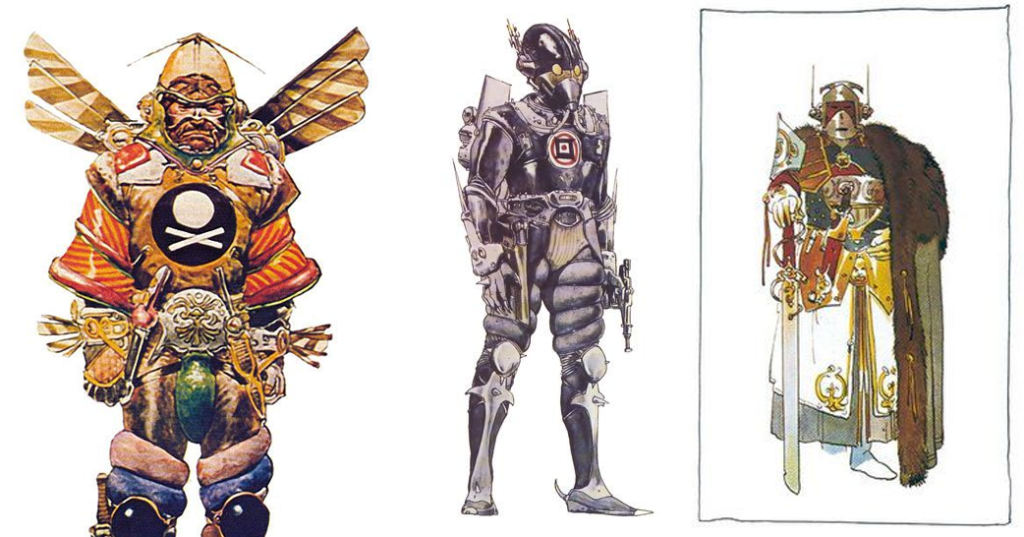
And even should he have a truer vision, who can he call upon to create concepts? The days of Ralph McQuarrie are over. Jodorosky had the mighty comic artist Moebius designing his characters and storyboards. Who can Villeneuve hire? The blue-haired chick who drew (on a computer) the comic of Superman kissing his bisexual boyfriend? We have spent decades systematically denying and replacing our true creative stock with scam artists, incompetents, or where possible, lifeless computer automation.
But it is experimentation, that wild courageous energy that Lynch and Jodorowsky possessed, which seems absent in modern film generally. They sometimes failed, but they also constructed those archetypal images and ideas, which were their interpretations of Herbert’s story. That reckless willingness to experiment with ‘dream-vision’ is exactly what is missing from the art of film today. Even edgy ‘art-house’ films (like The Lighthouse or Hereditary) are idiotic, miserable, and non-experimental in any important way.
The new Dune is a financial success because people are starved, not for nostalgia, but something to fill that void, that place where once you could enter a movie theatre and have your mind blown by something never before seen, and epic in scope. In the effort to cover their margins, the film marketeers of today take no risks, and there is little room for experimentation, or the unexpected.
It is best that you do not pretend things aren’t as they are, and take the trash that you are offered as entertainment. Their continuance relies on these tiny victories, on the normie lack of awareness that a culture has been supplanted, on the production of an even semi-competent ‘reboot’.










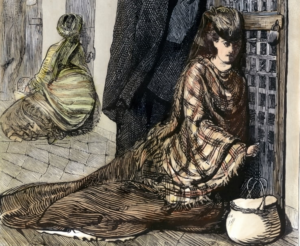
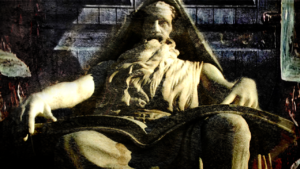
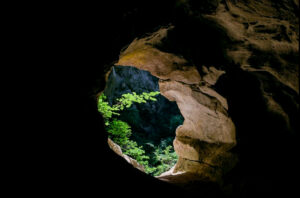
Brandon, I wish you’d go see the new Dune movie and post an actual review. I rarely ever go to the cinema but I made an exception here because I enjoyed the book and the reviews were good. My problems with the movie were slow pacing and under-used cast. Visuals were impeccable and it really captured the vibe of the book, but…
I probably will at some point, I’m not in any rush, when it eventually pops into my purveyance by some free convenience. I don’t expect much.
But what?